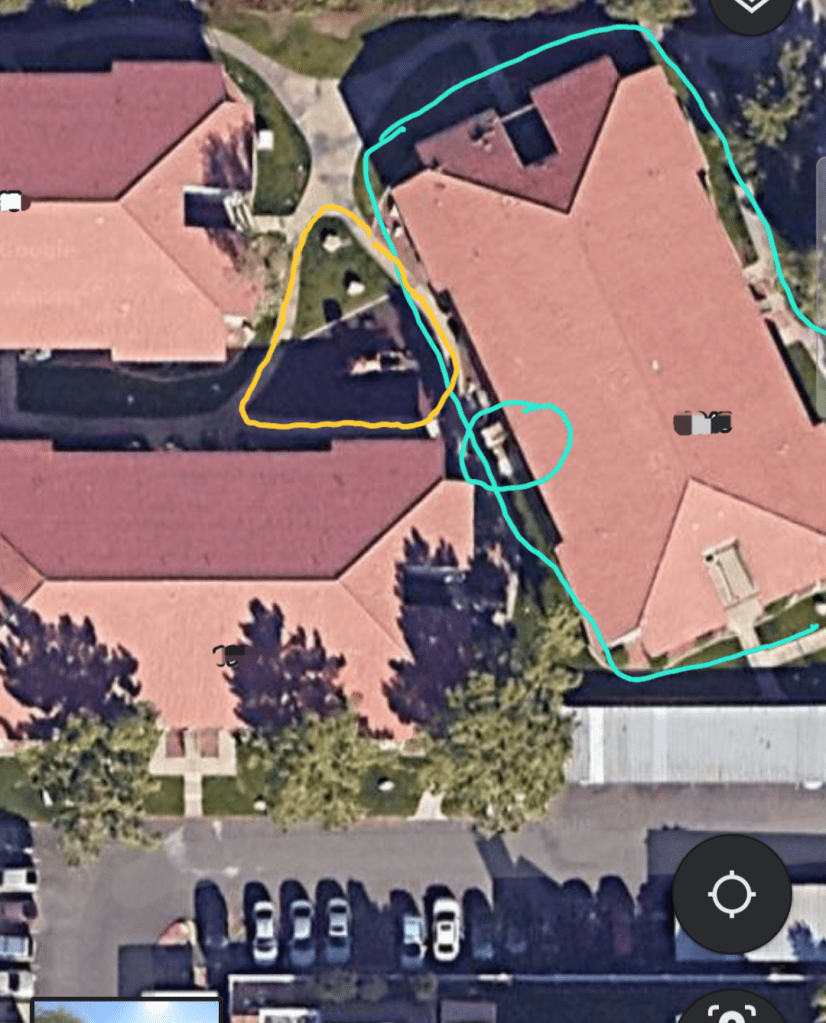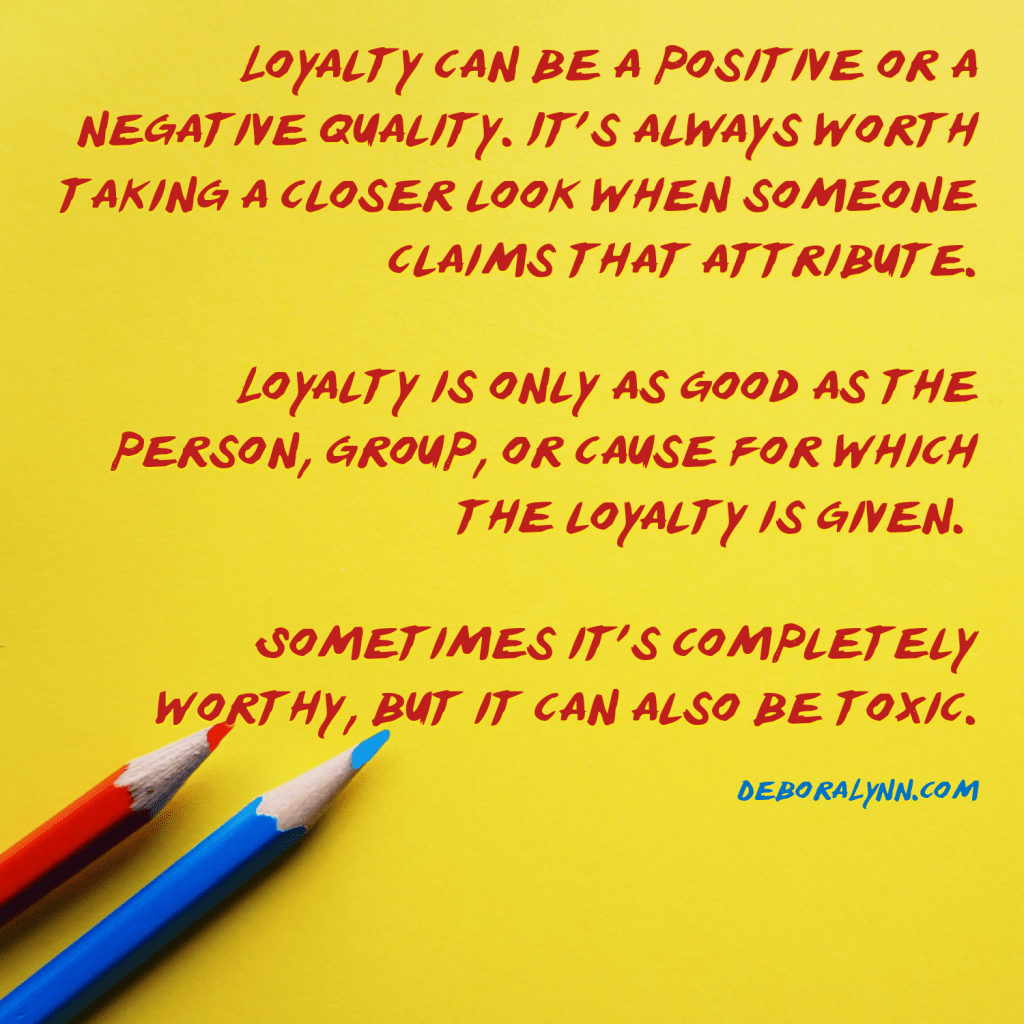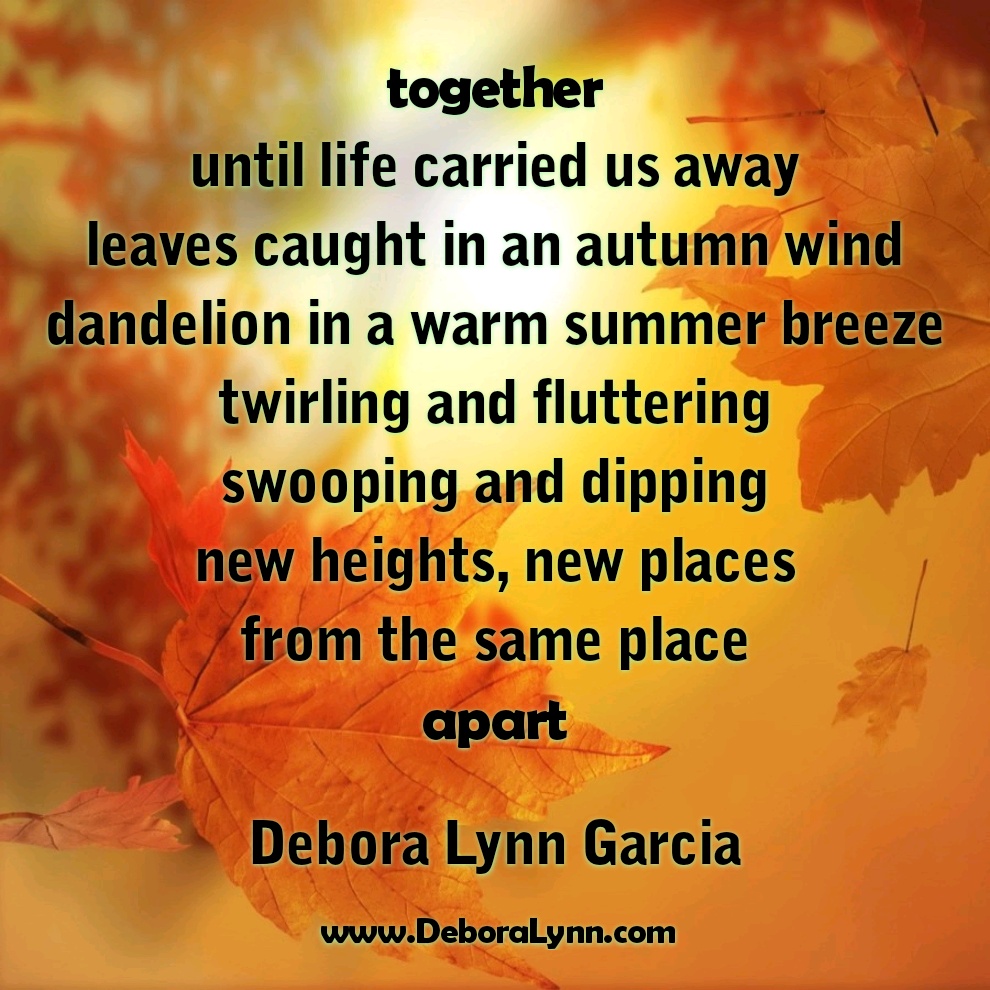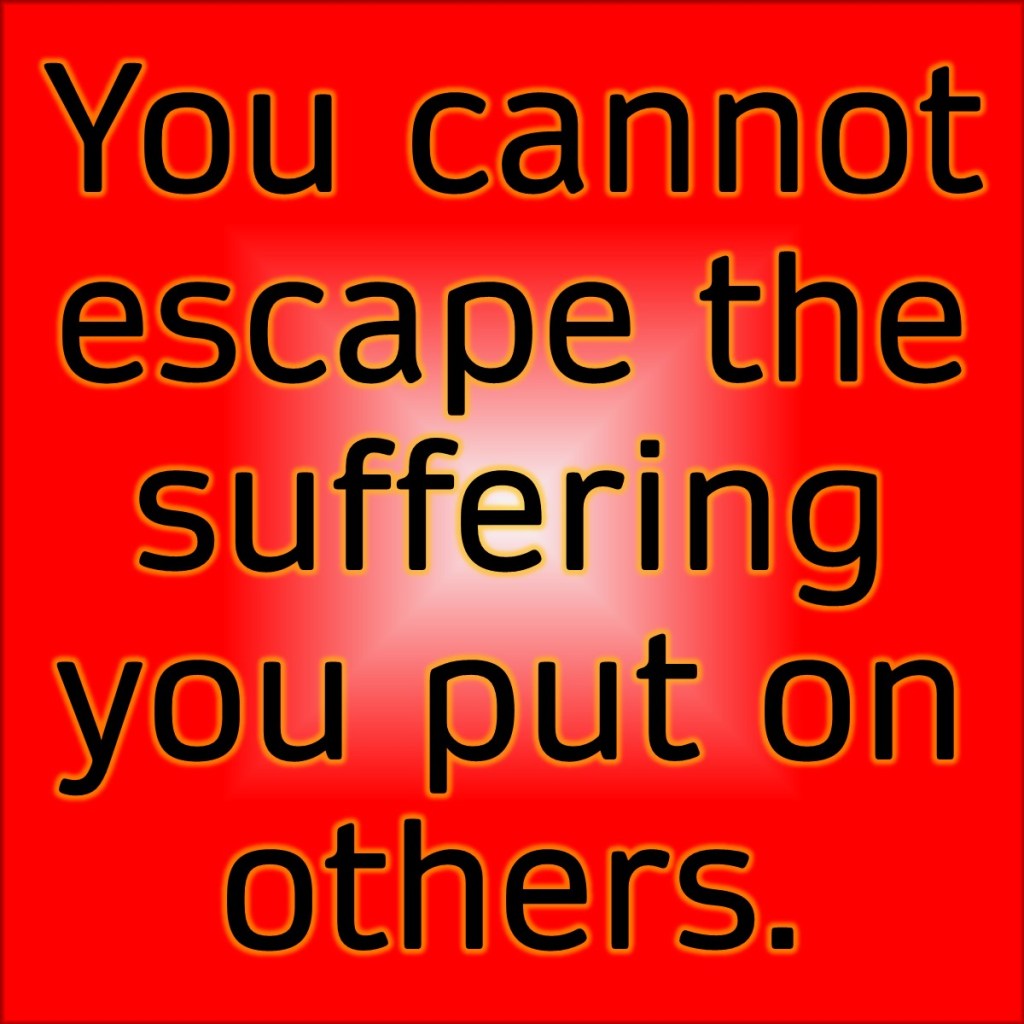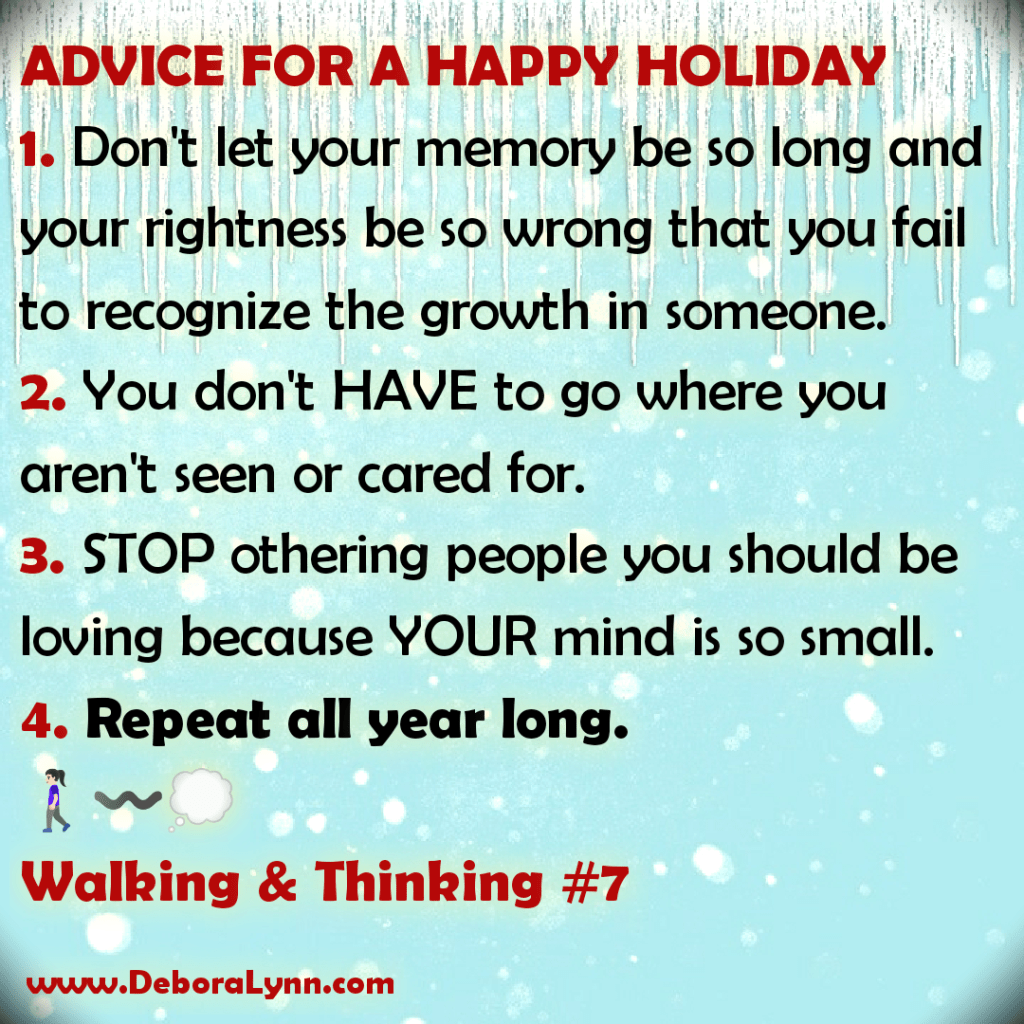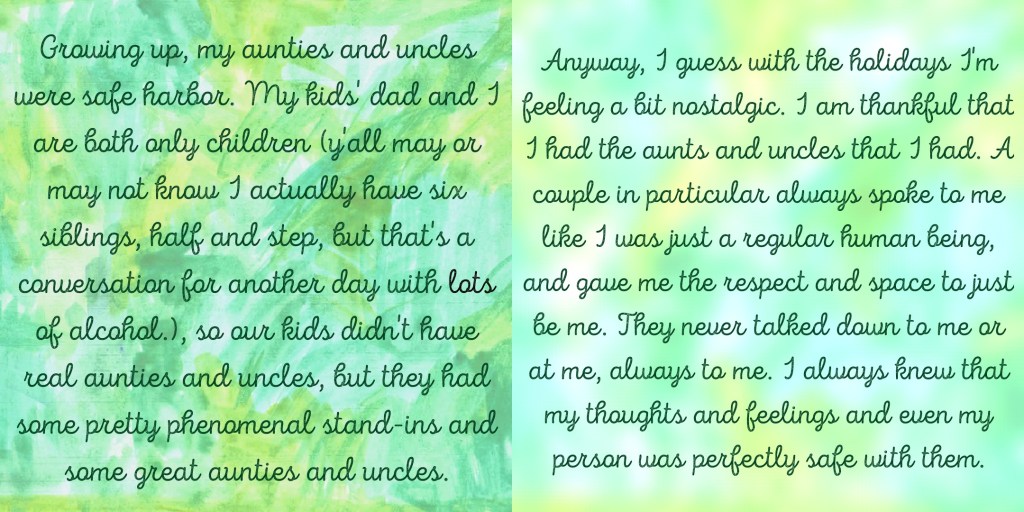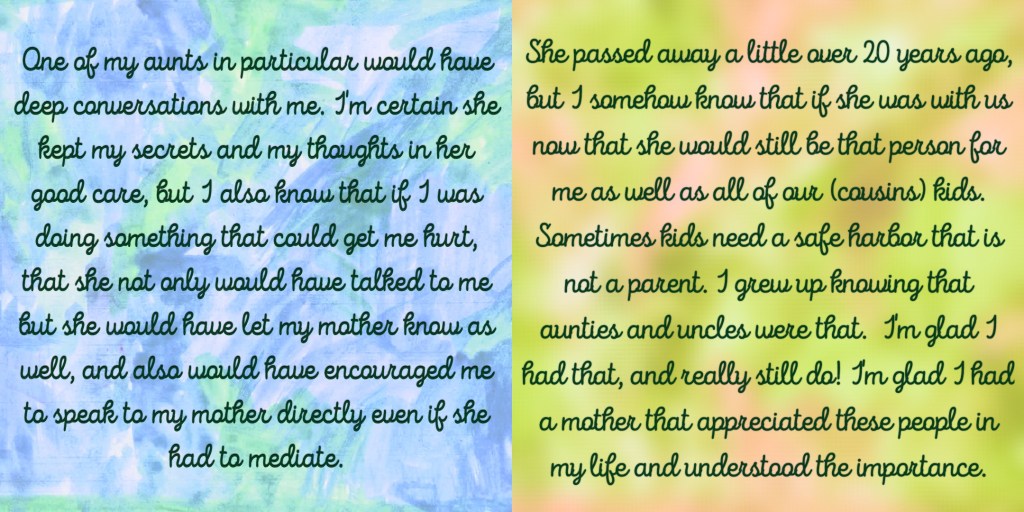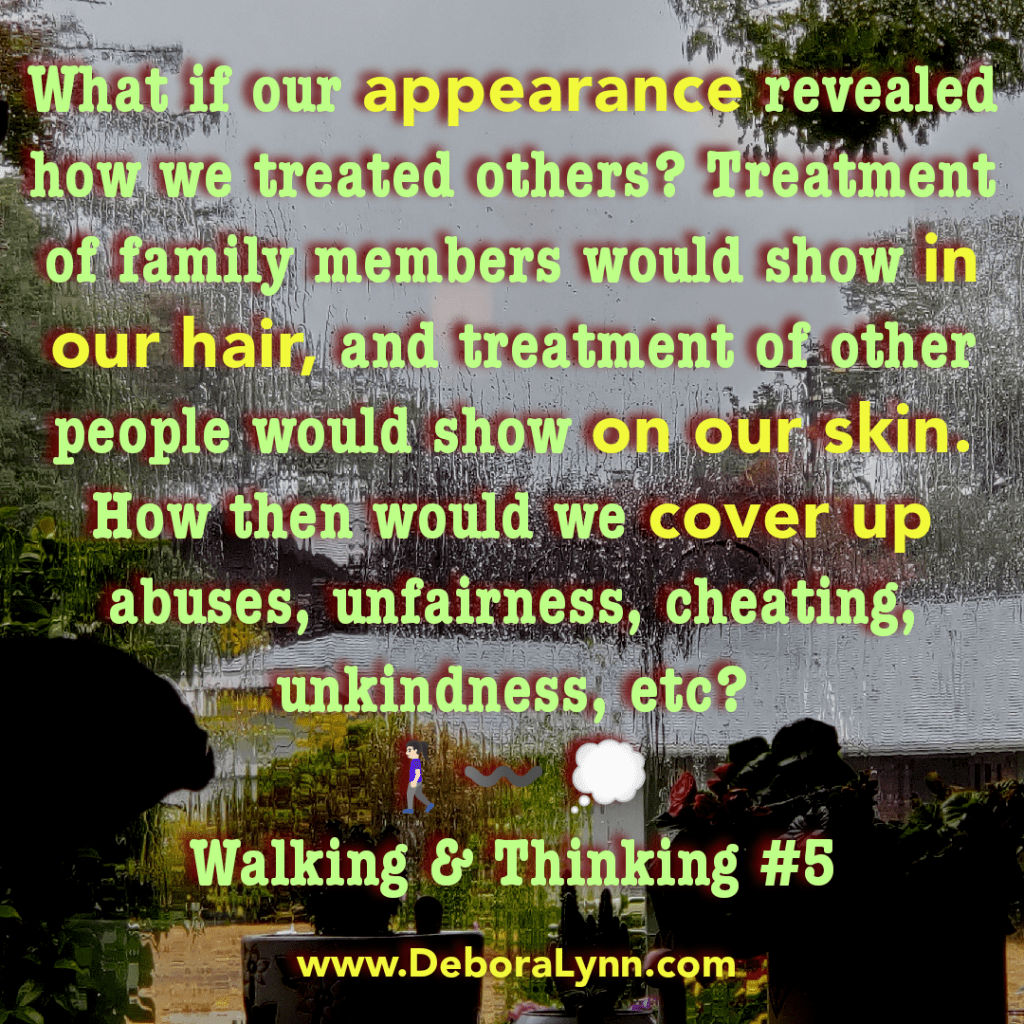Ode to Ms. Patsy
This memory flooded into my mind this morning in the shower seemingly out of nowhere. It must have laid dormant somewhere waiting for the right thought to release it.
Somewhere in the fog of several lifetimes ago
I was in a place where I felt lost and alone, overflowing with my story that there was no one that understood me and no one near that I could comprehend — a place where those around me would see me fail before they would reach out or lend a hand — I walked away from all of them, every single one, ensuring that except for my young boys, I physically was actually alone… well, were it not for those neighbors.
Though her face and features have dimmed from my mind, and even her voice, I still remember these things about Ms. Patsy: her hands, the texture of her hair and the few white spots in it, her living room, and above all, the extreme kindness. That will live on in me forever. And when I close my eyes and transport myself, I remember vividly the warmth of her apartment below mine, and the smell of red beans and rice and cornbread from a particular night. I don’t believe I have ever had a pot of red beans and rice as good as the ones from that night.
Somewhere, I think I still have a borrowed Tom Clancy or John Grisham novel of hers with her name written in it. I borrowed it and never gave it back. I am disturbed that I cannot locate it. Right now, I cannot even remember her last name, but I feel compelled to find that book so that I can see it In her own handwriting on the inside front cover. I feel like I owe her at least that — to see her full name, run my fingers across it, and to say it out loud. If I find it, I will update!
The marvelous universe delivered us both to the same desert location. She was our new downstairs neighbor, and at the time I had no inkling how much I would need her later on. She was much older than I, older than my mother even at that time, in her early 70’s if I recall. I was somewhere around 27. She became a surrogate, a sort of mother/grandmother figure in the quadruplex inside of the apartment complex where I and other young parents lived. I was drawn to her. She was hip, modern, funny, brilliant, and a master at acceptance. We bonded over a love for Earl Klug, the Blues, a love of reading, and memories of the Bay Area in California where I had lived and from where she had recently retired and moved. Little did I know that at some later date she would be the one who may have saved our lives, mine at least, and for sure saved my heart and soul one evening.
We talked about so many delicious topics, and she was one of the first Black women that talked openly with me about race and social justice, and about her son who was living with AIDS. At that time there was a lot of stigma around it and it was pretty much a death sentence. I think she knew that I was open and wanting to learn about the world around me, shoes that I would never (could never) walk in, and that it would expand my perspective. She took a liking to my kids who are biracial, and I think felt it a compelling and important reason to share some of the things with me that she did. It seemed like she had lived many lives, and now that I am closer to her age at that time, I understand.
We would sit out on the stoop with neighbors between all of our apartments and chat for hours about all kinds of things. Our kids would run around out front in the little play area or sit in one of our living rooms watching TV and playing games. I found her fascinating, powerful, brave, funny, and loving. She was as outgoing as she was outspoken. I admired that.
When Ms. Patsy first came to us, I was married with two young boys, not realizing there was a series of heavy, life-altering events ahead. Not long after she moved in, I became pregnant with my third child, and shortly after he was born my husband and I separated. The boys and I stayed at the apartment.
Change. Whoa, CHANGE!
At the time of the separation, I was a member of a religious organization that was extremely rigid and stifling. I received a lot of rhetoric for separating from my husband, and I was very unhappy at treatment that not only I was receiving from some of the women in my congregation, but also how they were treating another young sister after a family tragedy.
I was unemployed and chose to go to allied health school to make myself more marketable for employment. I needed a way to sustain my family. When I received strong criticism from the elders in the congregation and was ostracized and harrassed by some of the other wives for doing so, I felt it was just too much more to bear and I walked away from my entire community. To this day, I can’t imagine how they expected me to care for my family without finding a way to obtain a decent job. Except for my boys, I had absolutely no family near me, and no friends outside of the congregation… well, were it not for those neighbors.
We were poor — not broke, poor. I went from being a housewife and stay-at-home mother, and an active member of a full congregation, to a student and single mother of three boys (one of whom was an infant) without any friends or family around in the same month. We had no telephone. There were no cell phones in that day, no internet or email. In order to call my mother, I had to walk to another building in the apartment complex and call her collect on a payphone. I had no transportation. I had no money of my own. I had a neighbor drive the boys and me to the Department of Economic Security (DES) so that I could apply for food stamps and “welfare.” I was terrified, depressed, bewildered and overwhelmed, but determined.
My neighbors, and especially Ms. Patsy, leaned into me. It was EVERYTHING. They were encouraging, kept me company, and would even help me with the boys once in a while so that I could study for tests or finish homework.
In the morning, I would walk with all of the kids to take my oldest son to school about a half mile down the street. Some mornings, their father would pick up the younger two and take them to daycare a few miles away. Sometimes, I had to walk them. From there, I would go to school which was another half mile from our apartment in the opposite direction from my oldest son’s school. It was a lot of walking. But I was determined to finish this 9-month program that so many people worked hard to convince me was a ridiculous endeavor. At the end of my school day, I would walk back the mile to my oldest son’s school, and from there we would walk another two or three miles to the other side of the freeway to pick up his younger brothers from daycare and go home.
Spiraling
One morning in February 1993, our electricity was turned off for nonpayment. It felt like another hit, but I knew I had to get us to school so I put it out of my mind and told myself I would deal with it later that day. I left school a little bit early that day hoping to get a ride from a friend when I got home later to go pay the bill. It began to rain. I wasn’t expecting it and I was not properly prepared. It was very cold, and I had on my nursing whites, which consisted of white starched and creased pants and a white blouse, as well as my white nursing shoes and knee-highs, and a white lab coat. This is what was mandatory for us to wear to school back in that day. Thankfully, I had a decent winter coat left over from my days of living in California. So I hurried down the street to my son’s school, dragging a folded up umbrella stroller as fast as I could. It wasn’t raining super hard at this time, but it was cold and I was definitely getting wet. I picked up my son and we went on our way. He thankfully had a winter jacket that my mother had purchased for him, and put his hood on.
As we began our walk, it was still raining, mostly drizzling. By the time we had reached the daycare to pick up the two younger ones, it was pouring and we were pretty soaked. I bundled up my 4-year-old as best I could, and put my infant in the umbrella stroller. He had on a little sweater and sweatpants and had a blanket. As we began rushing as fast as we could towing a 4-year-old and pushing an infant, thunder and lightning began and it was raining so hard that I could barely see. When we left the daycare, I had draped my coat over my infant son to keep him warm and dry, but it was raining so hard that we were all wet. My lab coat and pants felt like a drape of ice. It was so cold. It was just SO cold! All I could think of was how cold I was, and how miserable this must be for all my babies. At one point, all four of us were crying. But we just kept walking. I don’t know what other choice we had! I was a mess. I could feel the mascara running into my eyes, and I was consumed with grief and fear.
It all just felt like too much that day. I had another six or seven months to go in school to finish my certification, and another month or more of cold weather. I didn’t feel like I could do it. I didn’t want to do it. I wanted to quit. I thought about dying. But even that felt like too much to think about, and like a betrayal to my kids, to my mom. I felt like I was failing and letting my kids and myself down. I was lonely. I was tired. I couldn’t see for the life of me how I was going to make this work.
I was just so damned cold, frozen to my core, it felt.
By the time we reached our apartment complex, my face, hands, legs and feet were numb and burning with the cold, and I knew it must be the same for the boys. Our clothes and shoes were completely soaked through. I was scared to death that my kids would get sick and I wouldn’t be able to afford to take them to the doctor or have to miss school.
As we approached our building, all I could think about was laying down and just sleeping forever. And then I remembered… the power was off! This meant that I had no heat and no way to cook what little food we had.
THIS
WAS
ALL
JUST
TOO
MUCH.
I had to walk past Ms. Patsy’s patio to get to the stairs to my apartment above. At the realization of the power and food situation, I burst into a wail. The kids were bawling. At that moment, Ms. Patsy came out onto her patio, hands to her mouth when she saw us. I just looked at her and could not stop crying. I was probably blubbering unintelligibly.
She instructed us to immediately come into her apartment. I didn’t even try to resist. We walked into her foyer, all of us dripping and frozen. She dumped towels over us, and went into her bedroom and retrieved a pair of sweatpants and large t-shirt and some socks. She handed them to me and told me to go into the bathroom and change. She said she would take care of the boys. I barely even recall what she put on them — I think it was just some T-shirts. I remember how relieved I was that they were dry and warm because of her. It was so warm in there, and it smelled so good! Something on the stove just smelled like love, warmth, and safety. And did I mention how deliciously warm it was in there?
Once dry, she sat me down on her couch and just hugged me and hugged me, ensuring me that this would be the worst of it all, and that everything was going to be alright. I wept and sobbed, and she just let me. She told me that she had grown worried about us when it started raining, and she had gotten in her car to come and get me from school, not knowing that I had left a little early that day. She didn’t know which way the daycare was and had driven around just guessing, knowing that it was somewhere on the other side of the freeway.
She had a small stackable washer and dryer unit in her apartment, and had thrown our clothes in the dryer. I sat there and told her how hard it had been, all the feelings and fears I had, about the power being turned off, about the woman at DES treating me so poorly once she eyeballed my biracial children, about leaving a whole community behind, about missing my mother, and she never once told me I was wrong or tried to convince me that there was something I needed to change or do. She just listened and let me hang out in my misery for a bit. She continued to listen until I had squeezed it all out of me.
She really took care of us that evening. She invited and insisted that we stay for dinner. She had made a big pot of red beans and rice and some cornbread. She had intended on bringing it up to us when we got home that day, but of course invited us to stay and eat with her. I have to tell you again — that was probably the very best pot of red beans and rice ever, and probably because it was made and served with unconditional love.
We were there for probably about three hours while I finished crying, while we ate and talked some more, and while we waited for our clothes to dry. She offered for us to stay the night there, but I was really wanting to get into my own space, and didn’t want to be any more of a burden to her. She told me she would bring up some red beans and rice leftovers the next day, and sent me upstairs with flashlights and $60 to pay for the light bill the next day, and an offer of a ride to get there. The boys and I all slept together in one bed that night under a pile of blankets with our bones and soles thoroughly warmed.
She saved us. She loved on us. Everything changed after that night. Well, maybe not everything, but something in my head clicked and felt better. It was a dark night of the soul for me, and she was the beacon that was right where and when we needed one.
Regret
I live with regret that I didn’t thank her thoroughly or say a proper goodbye when we left that apartment complex many months later — a decent farewell befit of such a gem. I only saw her once more after that when I returned to the complex to return a cradle that I had borrowed from a neighbor. I was in such a hurry all the time, living in this massive web of survival chaos and anxiety. I pray that from somewhere on the other side of the veil she knows the deep gratitude I have.
This memoir is the flowers and the grateful and loving words I wish I would have given her back then, our dear Ms. Patsy.
Love,
Debora
P.S. I finished school that August with a 3.90 gpa. I got my certification and completed an externship. I got a job. I bought a car. I missed my mother and moved back to my hometown 10 years later. My kids grew up. I have three grandchilden, three dogs, one cat, and one husband.
